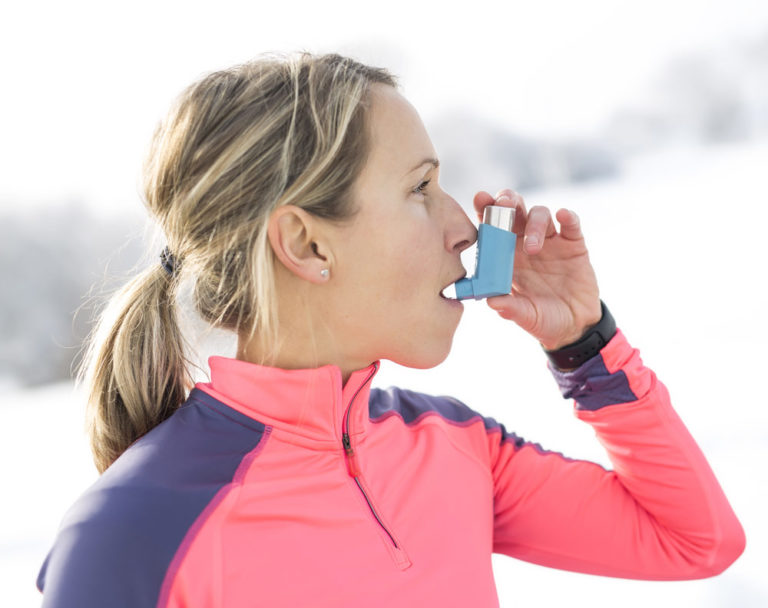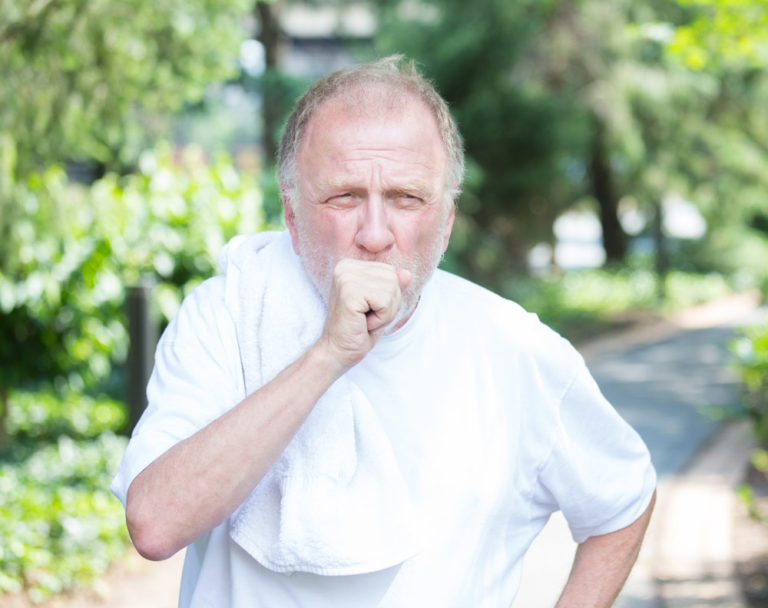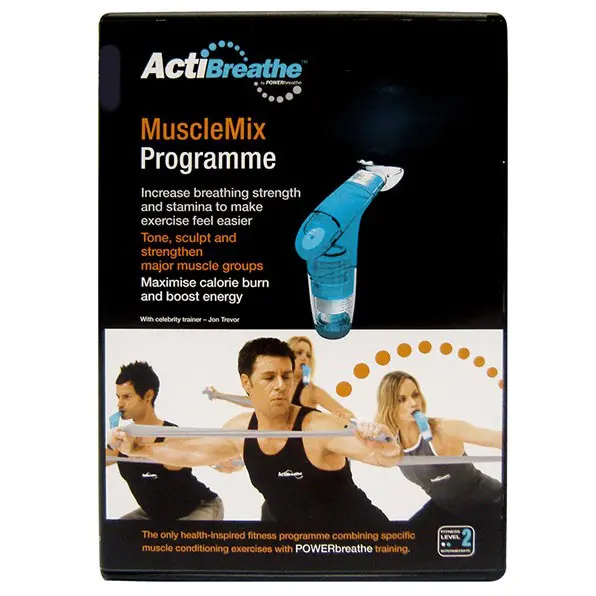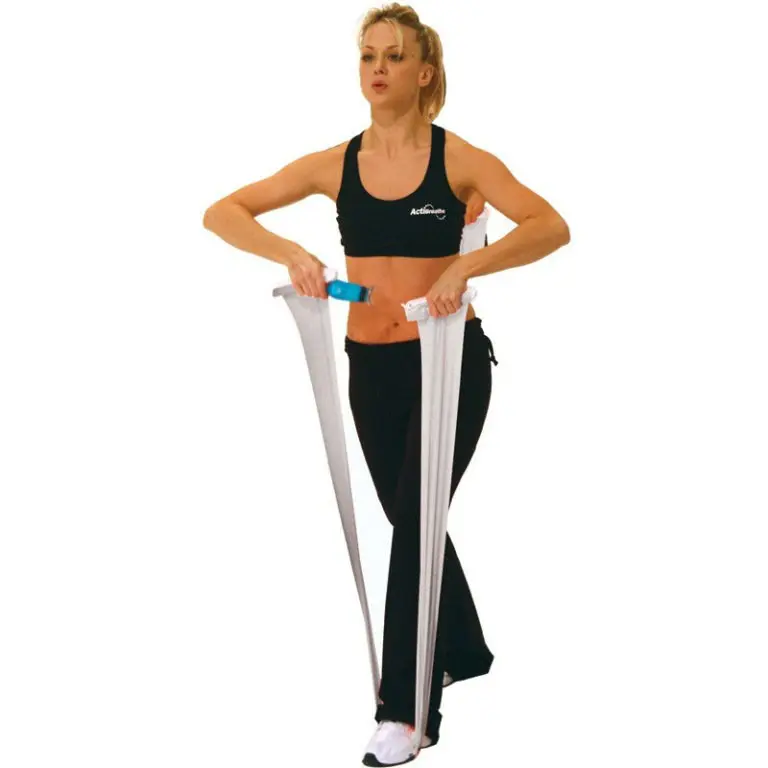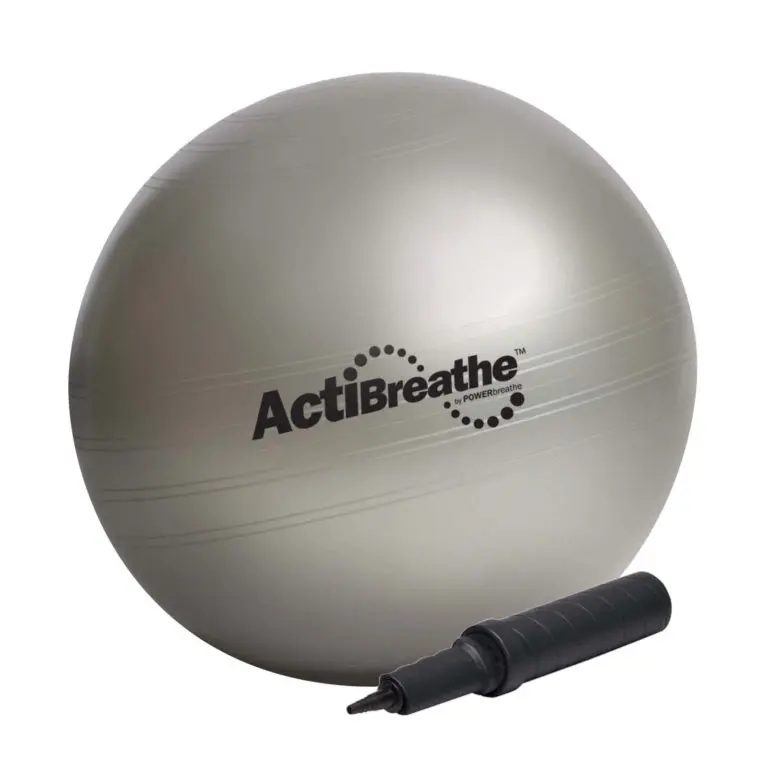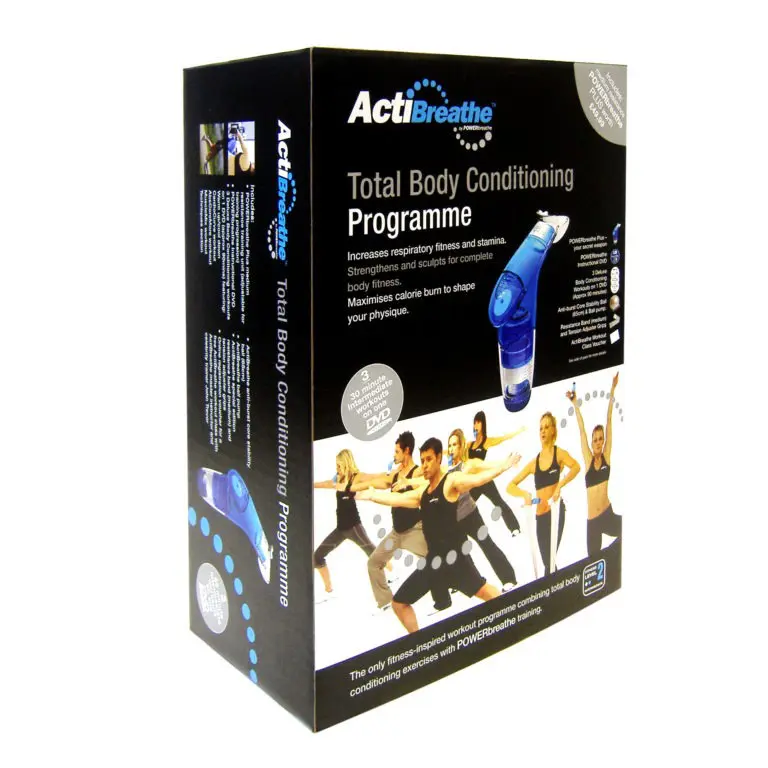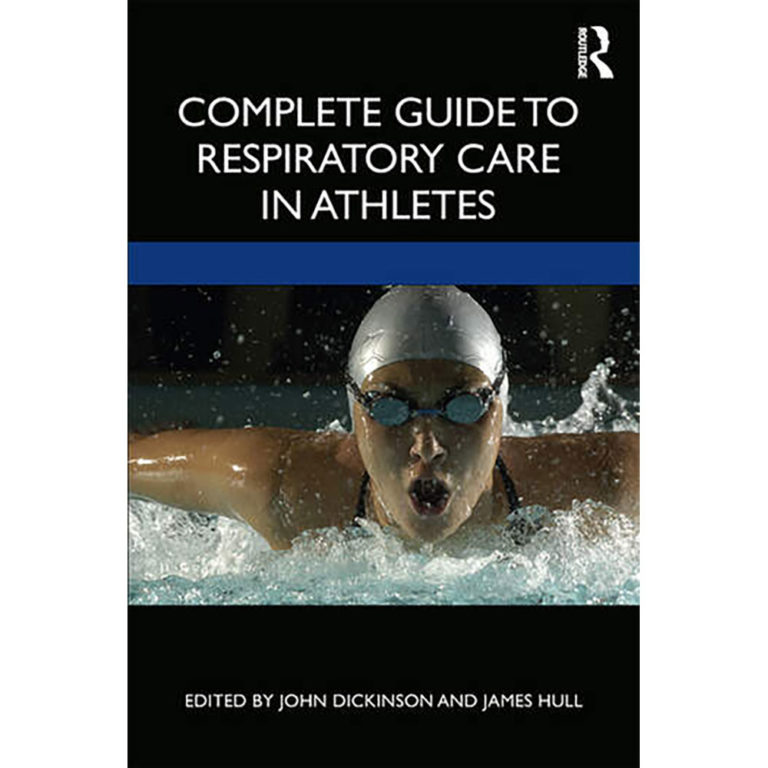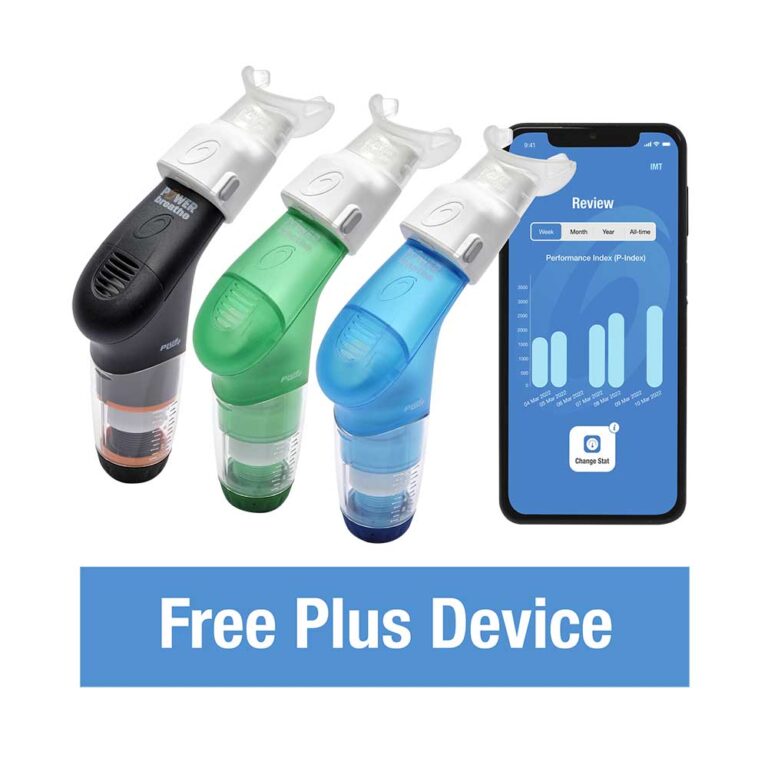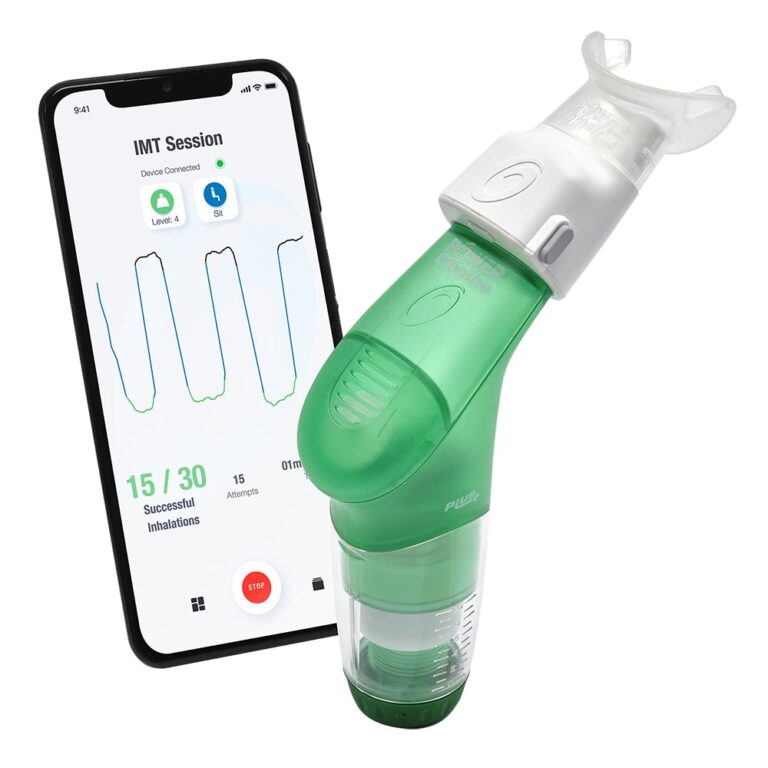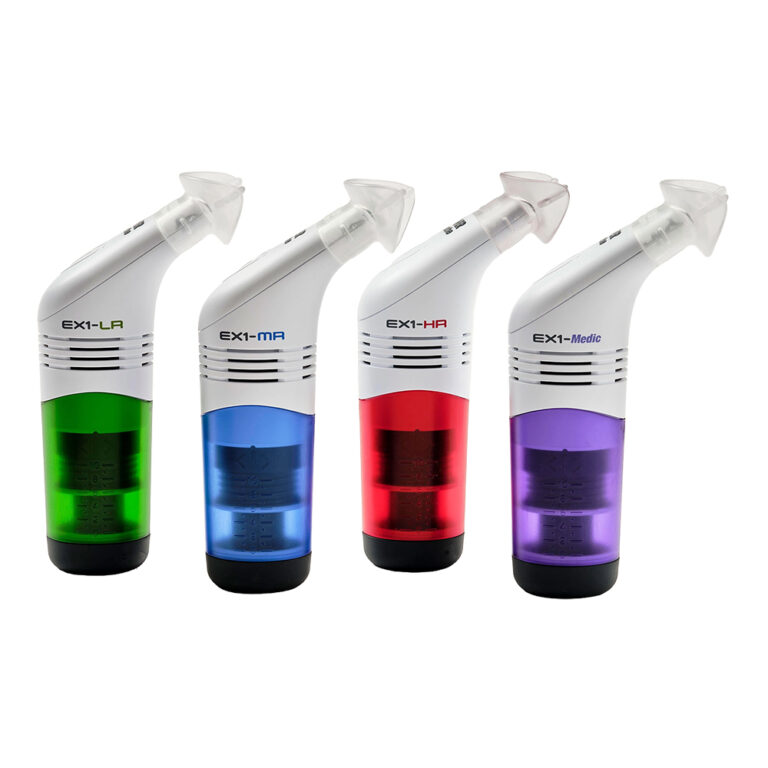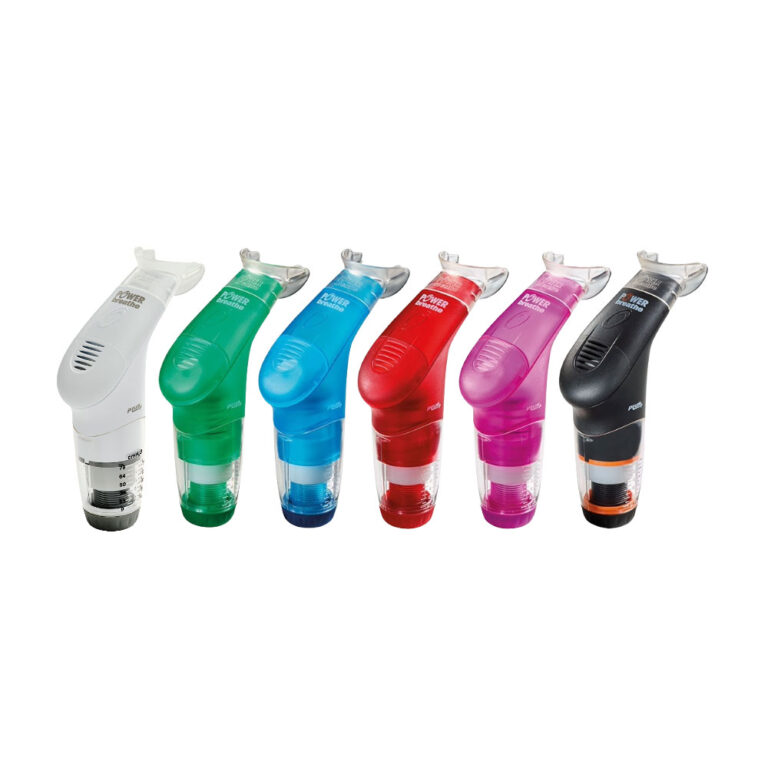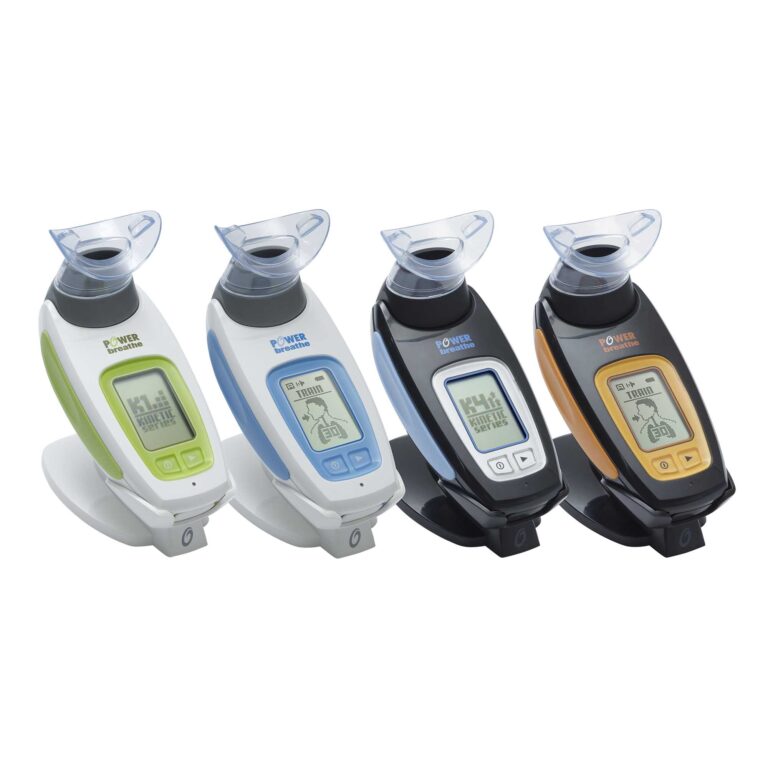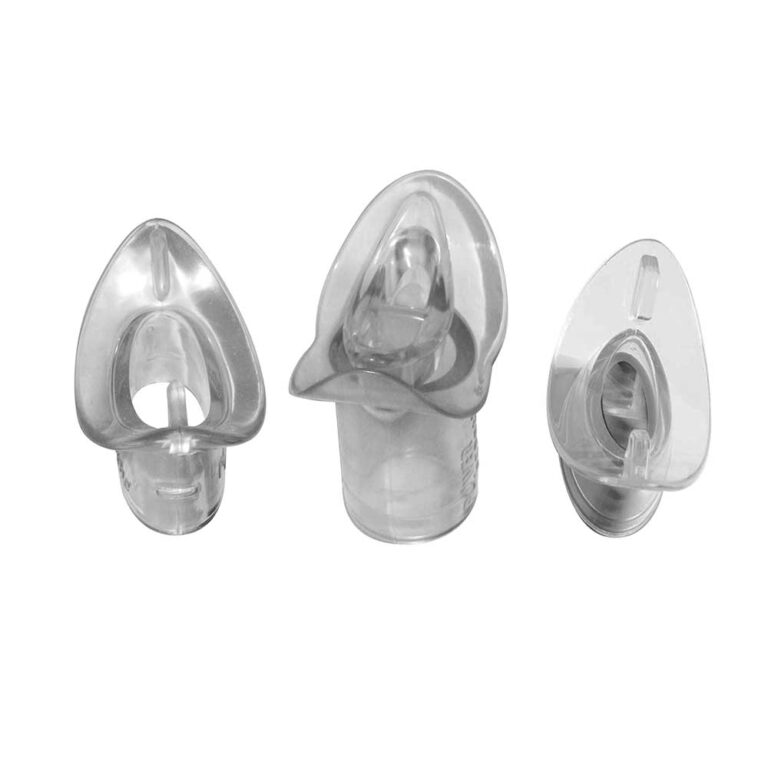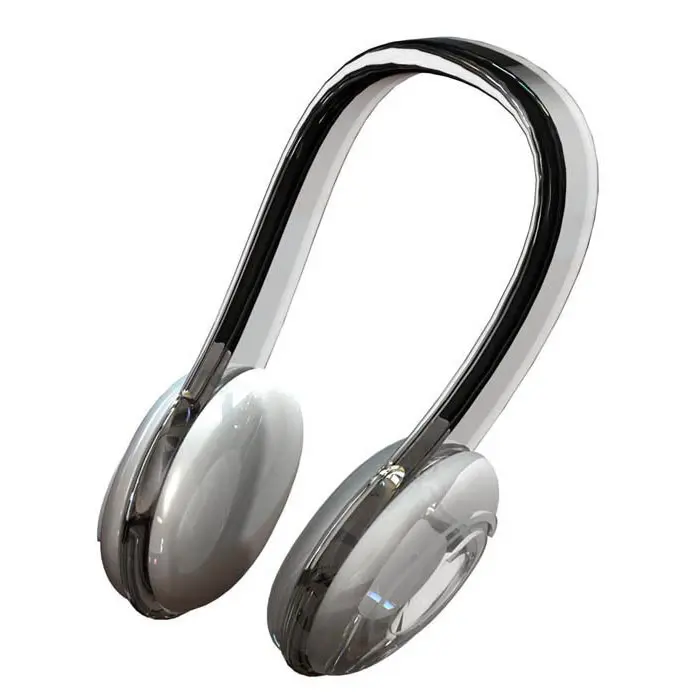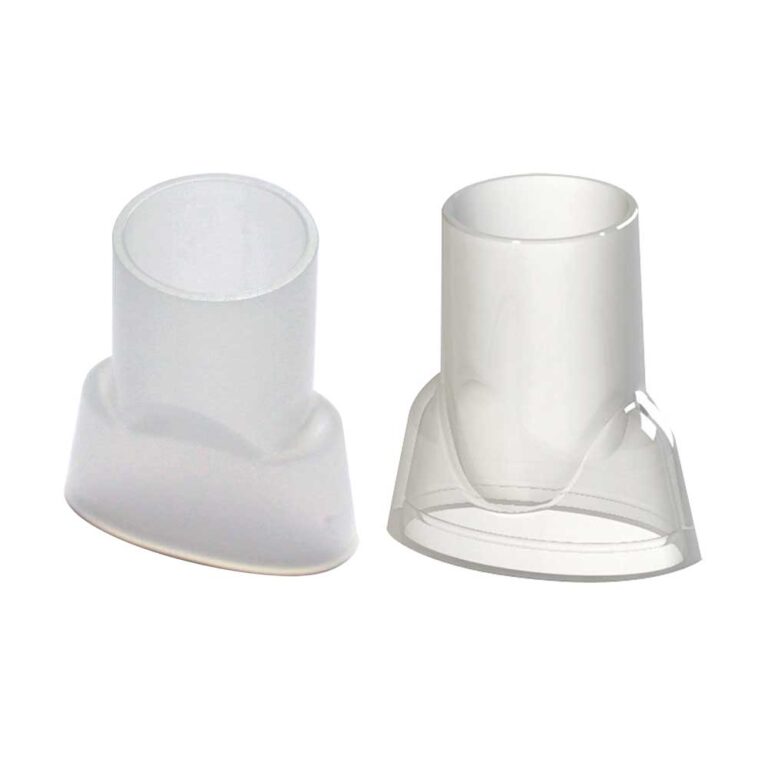
Select a Medical Condition
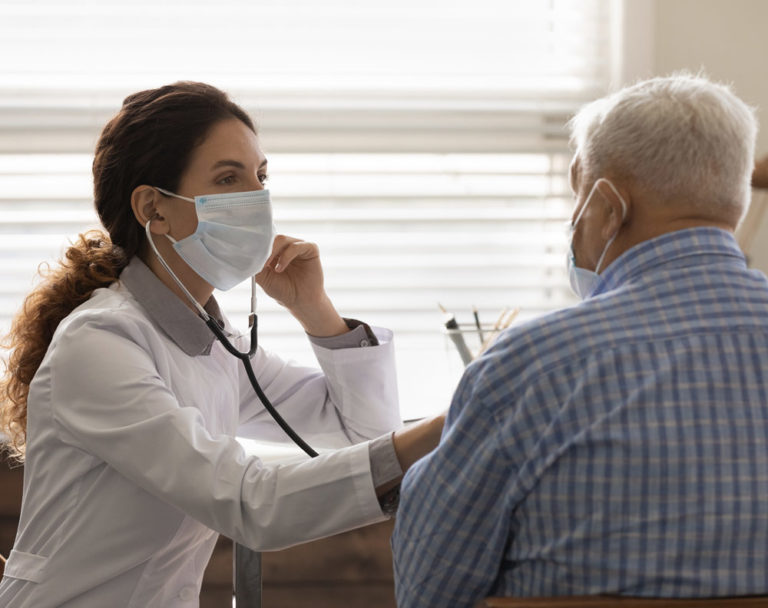
Breathing muscle weakness is common in COPD, heart failure, and other medical conditions. It can also be down to advancing age or lifestyle. Any condition that prevents physical activity can lead to inspiratory muscle weakness.
Breathing Effort In Older Adults
Advancing years can make you feel restricted by shortness of breath. In fact, studies show that breathing muscle strength reduces with age.
But when your inspiratory muscles are ‘overloaded’ using POWERbreathe IMT, they adapt, becoming stronger and resistant to fatigue. Stronger inspiratory muscles require less effort during a given task, reducing labored breathing (dyspnoea).
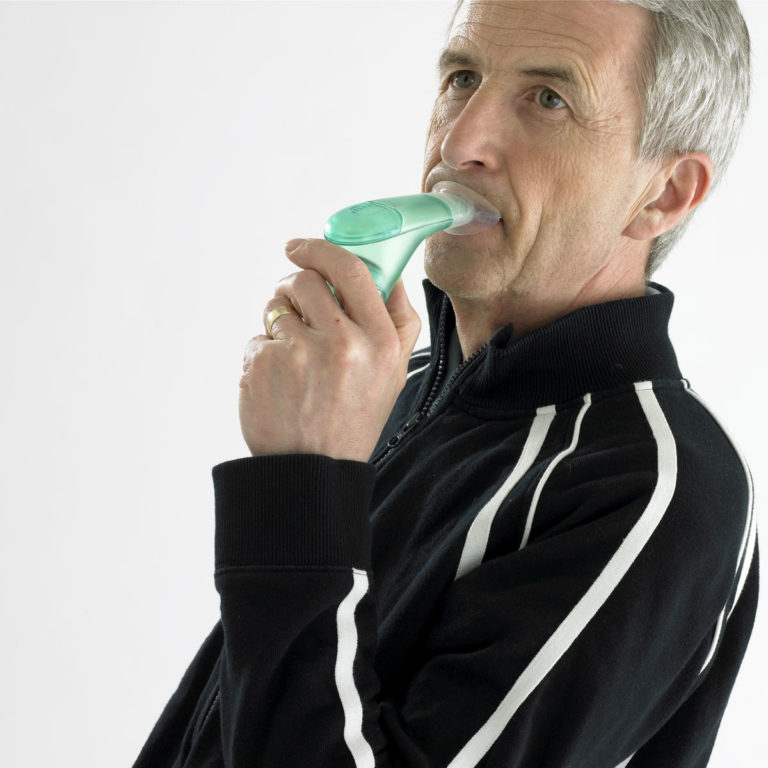
Breathing Effort In Inactive Lifestyles
Your breathing muscles display the ‘use-it-or-lose-it’ phenomenon as other muscles. This is why people who’re less active feel more breathless: because they are less active, their breathing muscles are not exercised and so they grow weaker.
People who strengthen their breathing muscles with POWERbreathe IMT feel less breathless. They are able to carry out activities which previously left them gasping.

Breathing Effort In Patient Groups
POWERbreathe Inspiratory Muscle Training is a drug-free, evidence based breathing trainer, used in medical conditions where inspiratory weakness is inherent. It is scientifically proven to:
- Increase inspiratory muscle strength ~34%
- Reduce breathlessness ~28%
- Improve quality of life ~19% & exercise tolerance 22%
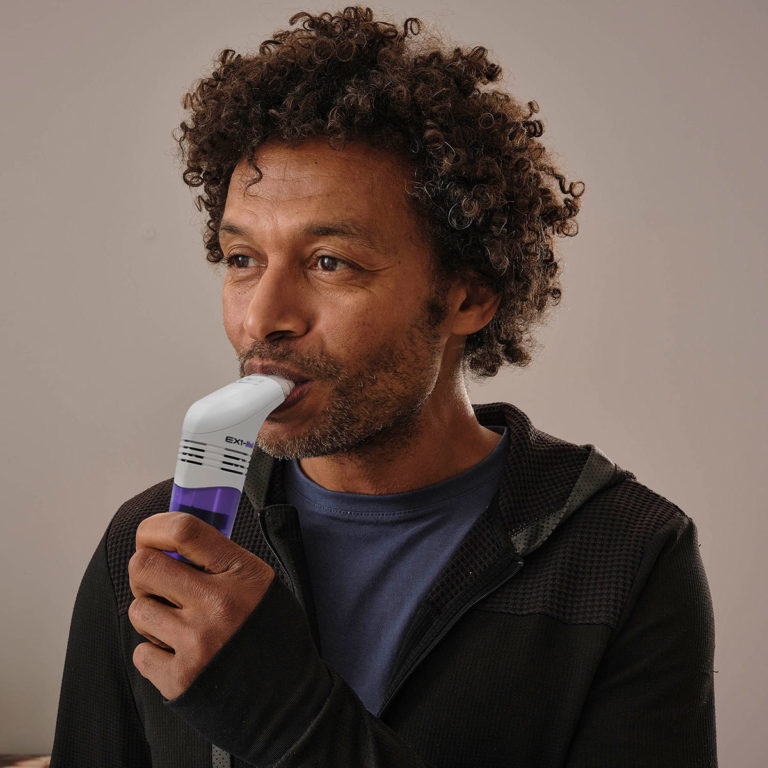
Expiratory Breathing Effort
Anyone who experiences the need to forcefully empty air from their lungs, such as coughing or an expiratory wheeze on exertion, will benefit from expiratory muscle training with POWERbreathe EX1 EMT devices.
Evidence shows that expiratory muscle training improves maximal expiratory pressure in the following conditions:
- Chronic Obstructive Pulmonary Disease (COPD)
- Cough (such as chronic bronchitis)
- Dysarthria (difficulty speaking)
- Dysphagia (difficulty swallowing)
- Multiple sclerosis (MS)
- Parkinson’s disease (PD)
- Spinal cord injury
- Stroke



